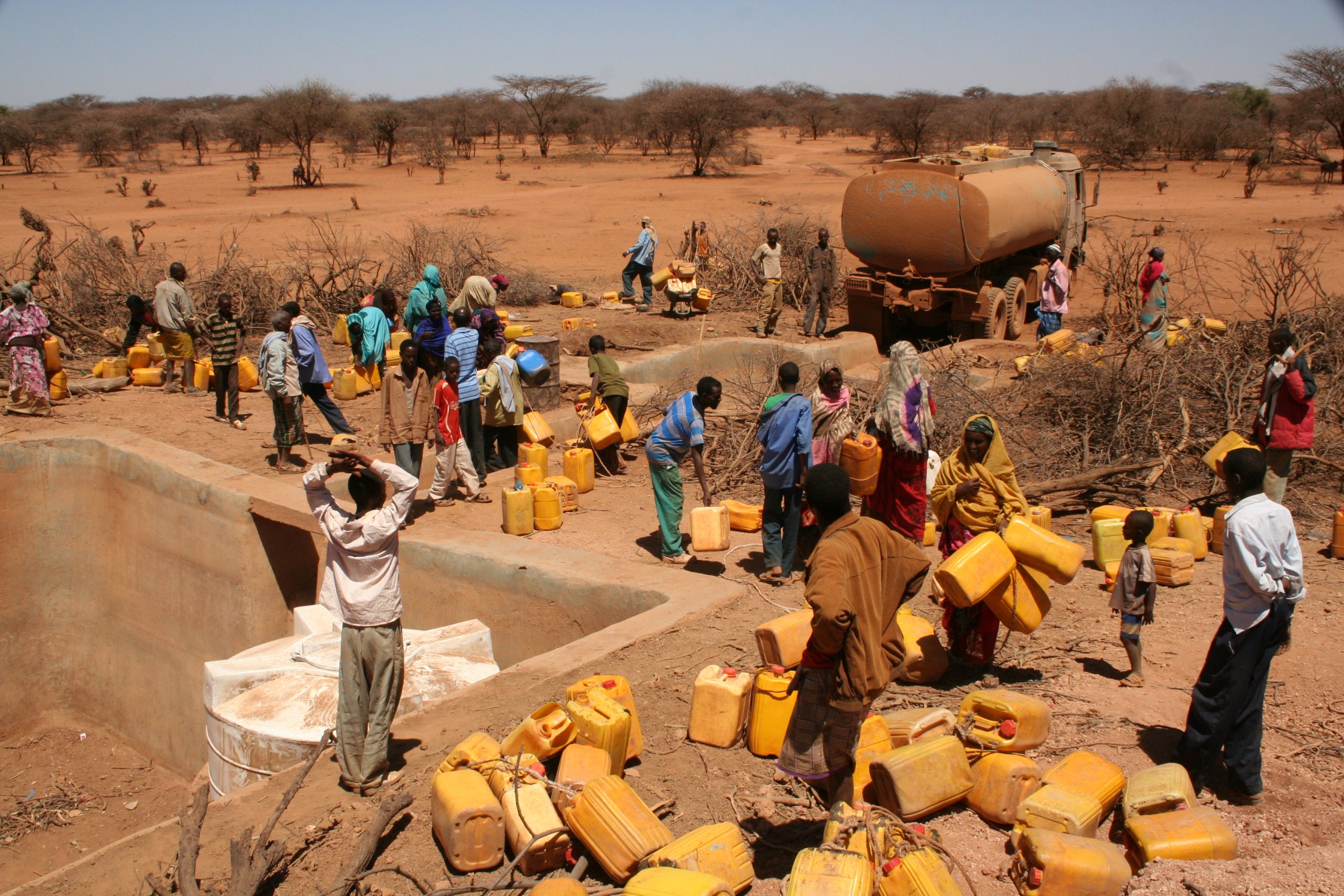Dr Katrina Charles, University of Oxford
Rory Stewart, the UK’s International Development Secretary, has announced his intention to double the amount DFID spends on climate change and the environment over the next five years. He described the challenge we face as a “climate cataclysm”. This is welcome news to all researchers who work closely with communities and policy makers working hard to adapt to climate change with limited resources.
Climate change will have significant impacts on the poorest in many ways. If we just focus on water and sanitation alone, access to services will be more difficult to maintain. Increasing water scarcity as rising temperatures increase evapotranspiration and with changes in rainfall will affect water availability and the capacity of current infrastructure to continue to provide services; sewers are an example of a technology that can fail in a drought. Changes in water availability can reduce payments as either there isn’t water to buy, or water is freely available as rainwater. Increasing intensity of storms and rainfall will increase erosion, which can damage infrastructure.
The World Health Organisation has been leading work to highlight the threats to water supply and sanitation services in the face of climate change, and how to build resilience. They have developed specific guidance to support integrating climate resilience into water safety plans, and incorporated climate resilience in their Guidelines on Sanitation and Health.
These tools are starting to embed climate issues in planning and management. However, building the capacity for water and sanitation professionals at all levels to access and use climate information will take significant investment and training.
This was a clear message from the participants at the annual meeting of the latest programme of the WHO’s climate resilience programme, which has been funded by DFID, on Delivering climate resilient Water, Sanitation and Hygiene in Africa and Asia. Those in the room had deep knowledge of the climate threats to their countries, and personal experience with managing them, including managing the impact of Mozambique’s unprecedented storm season this year.
DFID’s ongoing investment in this area will
be critical to deliver increased capacity to make decision about water supply
and sanitation management, and water resources management, that integrate
climate considerations, and provide the resources to act on those decisions. Through
REACH, we have a lot of expertise on the climate challenges that Ethiopia and
Kenya are facing, and reducing the confusion that the uncertainty can cause:
from careful selection of the Global
Climate Models that best represent the local climate, to decision tools
that use a climate
response surface to communicate the potential implications of different
management decisions under a changing climate. Ensuring we build climate
literacy in our practitioner partners in government and other decision-making
positions will be essential to embedding climate in decisions about water
security at all scales.

